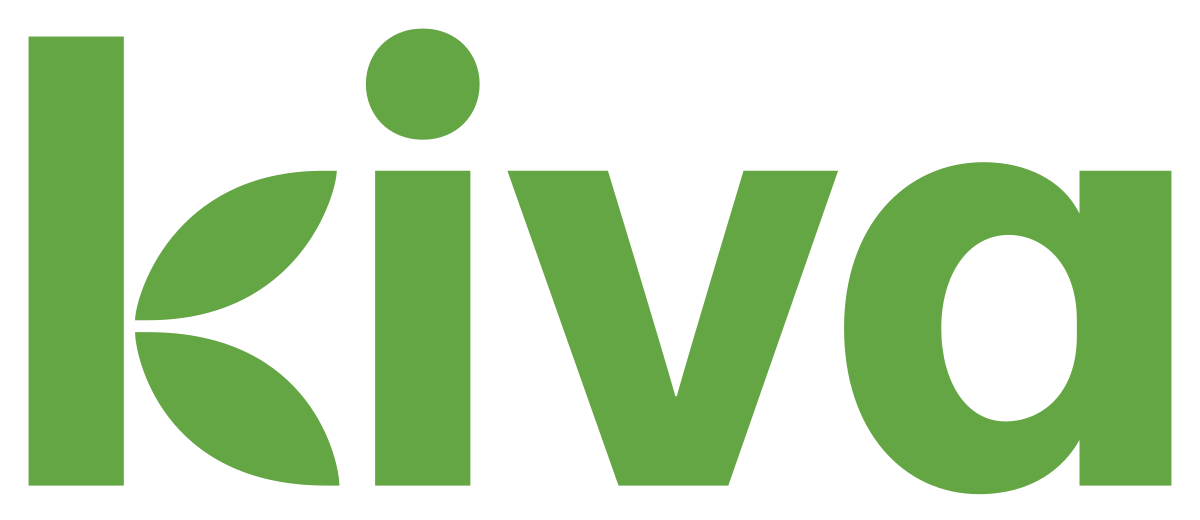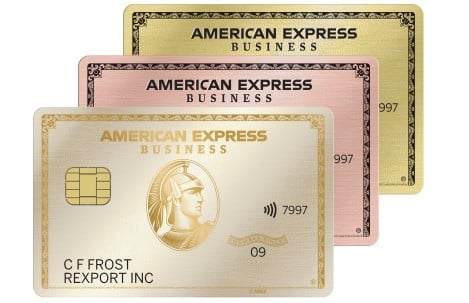How to Apply for and Get a Business Loan in 6 Steps
Choose the right type of loan for your qualifications and business needs, compare lenders and then apply.
Many, or all, of the products featured on this page are from our advertising partners who compensate us when you take certain actions on our website or click to take an action on their website. However, this does not influence our evaluations. Our opinions are our own. Here is a list of our partners and here's how we make money.
Concerned about tariffs?
Many small-business owners are under increased economic stress and uncertainty following the latest tariff announcements. NerdWallet is here to help you find answers for whatever you're looking for. Here are some resources to help you get started:
Need emergency funding? Consider a business line of credit.
Looking for fast access to working capital? Discover the best working capital loans.
Want tips on how to mitigate the impact of tariffs? Read our guide.
In this article
If you’re wondering how to get a small-business loan, you’ll want to devote the necessary time to do your research and find the right fit. It can take months to access funding, especially when it’s backed by the U.S. Small Business Administration.
By understanding all your business loan options and not rushing the process, you’ll be in the best position to apply and get approved — as well as avoid wasting time or money.
Here are six steps to apply and get a small-business loan.
How much do you need?
We’ll start with a brief questionnaire to better understand the unique needs of your business.
Once we uncover your personalized matches, our team will consult you on the process moving forward.
1. Decide what type of loan you need to fund your business
The right type of business loan for you depends on what you’re hoping to accomplish. In general:
If you want to finance a large purchase or business expansion: Traditional term loans are lump sums that you pay back over time with interest and often have high borrowing maximums — SBA loans can reach $5 million, for example. Many lenders also offer specific products to fit a growing company's needs, such as loans for equipment or vehicle purchases.
If you need funds for day-to-day expenses: Business lines of credit are a flexible kind of funding that lets you tap into capital as you need it to cover expenses such as payroll or unexpected repairs, offering a useful safety net. Working capital loans can also be a good option if you need to pay for short-term costs.
If you’re looking to fund a startup: It can be tougher for new entrepreneurs to get a traditional business loan, but business credit cards and personal business loans can be good options if you haven’t been in business long enough to qualify for a line of credit or term loan.
💡 Nerdy Insight
SBA microloans can also be a good option for startups, especially those that aren’t bringing in significant revenue yet. These loans offer funding up to $50,000 and have more flexible qualification requirements.
2. Determine if you qualify to get a business loan
A number of places offer business loans, including banks, online lenders and microlenders. Answer these questions to help determine at which type of lender you’ll meet the eligibility requirements to qualify for a small-business loan:
What's your credit score?
You can get your personal credit report for free from each of the three major credit bureaus: Equifax, Experian and TransUnion. You can also get your credit score for free from several credit card issuers and personal finance websites, including NerdWallet.
Banks prefer to offer their low-rate business loans to borrowers with credit scores in the good and excellent ranges, or 690 and above.
If your credit score falls below that threshold, consider nonbank lenders. Online business loans can be a little easier to qualify for. You may also want to consider microloans or small-business loans for bad credit.
💬 From our Nerds: A note about credit scores
"Your credit score is one of the most important factors lenders consider when underwriting your loan application.
The higher your credit score, the more likely you are to qualify for a loan, as well as access the most competitive rates and terms.
If your credit score is on the lower side, it may be helpful to build it up before applying. You can build your credit by disputing errors on your credit report with the relevant credit bureau, paying down debt or making debt payments more frequently."

— Randa Kriss, lead writer covering small business
How long have you been in business?
You need to have been in business for at least three months to one year to qualify for most online loans and at least two years to qualify for most bank loans.
Do you make enough money?
Many lenders require a minimum annual revenue, which can range anywhere from $50,000 to $250,000, for business loans and lines of credit.
If your revenue isn't high enough to qualify for those loan products, or if you're a startup with no revenue yet, consider looking into business credit cards or microloans.
Can you afford loan payments?
While looking at your annual revenue, you should also consider your cash flow — and evaluate how much you can afford to apply toward loan repayments each month.
As a general rule of thumb, your total income should be at least 1.25 times your total expenses, including your new repayment amount.
For example, say your business’s income is $10,000 per month. That’s 1.25 times $8,000 of expenses. If you already pay $7,000 in rent, payroll and other costs, you should be able to afford a $1,000 monthly loan payment.
Some online lenders require daily or weekly repayments, so make sure to factor that in — you’ll need enough cash flow to make payments at the time they’re due.
Estimate the cost of getting a business loan
Estimate payments to understand the cost of a business loan
Over the course of the loan, expect to pay
$0.00/mo
Payment breakdown
Get personalized small-business loan rates to compare
with Fundera by NerdWallet
3. Compare small-business lenders
You’ll typically want to get the business loan that offers you the best terms. But other factors, like funding speed, may matter to your business and different funding sources may be better in certain instances than others.
When to get a business loan from banks:
Traditional bank options include term loans, lines of credit and commercial real estate loans to buy properties or refinance.
Banks typically offer competitive interest rates, long repayment terms and large loan amounts. Taking out a small-business loan from a bank can be difficult, however, if you’ve been in business less than two years, don’t have consistent revenue or have fair, poor or no credit.
For those who can qualify, it’s important to keep in mind that banks often require a detailed and lengthy application process and funding times can be slow.
When to get a business loan from the government:
Through participating lenders (like banks and credit unions), the U.S. Small Business Administration guarantees general small-business loans with its 7(a) loan program. The SBA also has a 504 loan program that helps fund the purchase of land, buildings or equipment through long-term, fixed-rate financing.
These options offer low interest rates and long repayment terms. SBA loans have strict requirements, but may be slightly easier to qualify for than loans from banks and credit unions.
Other government business loans can be well suited for specific types of companies. The U.S. Department of Agriculture, for example, administers a variety of loan programs designed for small businesses in rural areas.
When to get a business loan from online lenders:
Online lenders generally provide small-business loans and lines of credit of up to $500,000. The average annual percentage rate on these loans ranges from 14% to 99%, depending on the lender, the type and size of the loan, the length of the repayment term, the borrower’s credit history and whether collateral is required.
These lenders rarely have APRs as low as what traditional banks offer, but approval rates are higher and funding is faster than with banks — as fast as the same day in some instances.
When to get a business loan from microlenders:
Microlenders are nonprofits that typically make small loans of less than $50,000. The application may require a detailed business plan, financial statements and a description of what the loan will be used for — meaning they can take longer to fund than some online options.
Also, the size of the loans is, by definition, “micro.” But these loans may work well for smaller companies or startups that can’t qualify for traditional bank loans due to a limited operating history, poor personal credit or a lack of collateral.
Accion Opportunity Fund, Kiva and Accompany Capital are just a few examples of nonprofit microlenders.
4. Gather your application materials
Each lender may require different documentation for its small-business loan application. Most will likely want some form of the following:
If you’re not sure what you need, you might start with the SBA loan application requirements. Government small-business loans typically require more paperwork than other options, so if you have everything the SBA wants, you should be well-prepared for whatever a lender asks for.
5. Apply for a business loan
Once everything is in order, how you’ll actually apply for the small-business loan will depend on the lender. For example, online lender Fundbox lets you link your business accounts through its website to qualify for financing.
More traditional financial institutions, such as banks and credit unions, may make you apply at a branch or over the phone. For example, Bank of America accepts online applications for some of its products — like its business auto loans — but requires an in-person or phone appointment for others.
Before submitting your business loan application, consider having someone else look over it, such as a professional from your local Small Business Development Center, or SBDC.
These business professionals can help you double-check that your application includes everything the lender asked for and in the appropriate format. The lender may have questions as it evaluates your application, but by reducing unnecessary back and forth, you’ll get a decision as quickly as possible.
6. Review your loan agreement and get funds
Once your business loan application is approved, you’ll receive a loan agreement from your lender. This business loan agreement will lay out all of the terms and conditions of your lending arrangement, including the loan amount, repayment terms and schedule, interest rates and fees, among other items.
You should review your loan agreement thoroughly, taking note of anything that’s unclear and writing down any questions you have. Then, you can reach out to your lender for clarification and/or answers to your questions.
It can also be helpful to have a business attorney review the agreement. Organizations like SCORE can provide low- or no-cost access to small-business legal services.
Next, you’ll sign the loan agreement and return it to your lender. The lender will disburse your funds, usually by transferring them directly to your business bank account.
How do I get a first-time business loan?
The business funding process can be taxing, especially when you’re applying for the first time. Here are some additional tips to help you get a first-time business loan:
Leverage your existing financial relationships. Banks typically offer the most competitive business loans, but they can be difficult to qualify for, especially for newer companies. Some banks, especially local or community institutions, however, may be more flexible with their requirements if you have an existing relationship. You might consider getting a business loan from the bank that administers your business checking account or one that has issued you other financial services in the past.
Don’t rush your paperwork. When you complete an application, it’s important to double check all requirements and ensure everything is accurate. Providing incorrect or outdated information can slow down the application process — and if the lender is using automated underwriting technology — sometimes trigger an automatic rejection.
Utilize expert resources. It can be difficult to manage loan applications for the first time, especially while continuing to run your business. If you don’t yet have an internal team to help you through the process, local business organizations can offer free or low cost support. Professionals at these organizations can help you prepare your finances and other application documents, answer questions and share additional resources.




















